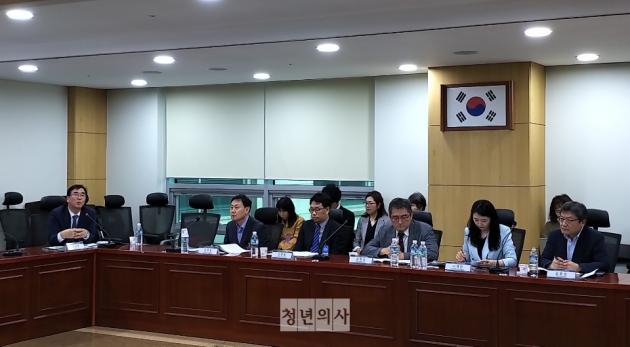Big data, the key to medical technologies in the future, is being regarded as a silver bullet to solve medical issues. Experts note, however, such hype is worrisome.
Particularly in Korea where the government runs the single national health insurance program, big data can be easily exposed to contamination and the government should be able to verify the transparency of big data, they said.

“I wonder how much big data provided by the National Health Insurance Service (NHIS) or the Health Insurance Review and Assessment Service (HIRA) are valid when physicians activate big data in clinical care,” said Na Hae-ran, a professor at Psychiatry Department at the Catholic University of Korea Yeouido St. Mary’s Hospital.
Na made these and other points at a policy forum for active use of big data in the healthcare sector at the National Assembly on Friday. “We should first verify that the currently coded data is clean in quality and reliable,” she said.
According to the National Institute of Dementia’s report “Korea’s Dementia Status 2018,” 705,473 people were dementia patients among the elderly population aged 65 or more as of 2017, and the prevalence of dementia was 10 percent. In other words, one in 10 elderly Koreans suffered from dementia.
However, the “real” dementia patients among those registered as dementia patients were only 10 percent, according to Na.
“The local community usually put ‘dementia’ labels on people who were diagnosed with dementia due to memory loss, but I sometimes wonder all of them are suffering from dementia,” Na said. “If all of the patients with memory impairment are considered to be dementia patients, the real dementia patients account for 10 percent. Another 65 percent has degenerative aging, and the remaining 25 percent are in a grey area where they look sick, but they are not sick.”
Na said she looked into data of people who suffered dementia for 10 years and could not help but think that the data was biased so much that there were so many dementia patients in Korea.
“The NHIS or HIRA should verify how much the present coded data can be reflected as actual data, whether academically or clinically,” the Catholic University of Korea professor went on to say. “We should not trust big data to make all the decisions. We should secure the transparency of data algorithms.”
Another expert also said it was necessary to check the process of changing big data from simple information to knowledge.
Kim Hun-sung, head of Big Data Clinical Utilization Research Society, agreed that big data was overestimated. “Big data experts say big data is not at a stage where something great can occur,” he said.
People anticipate that opening up big data would lead to better healthcare services, but there is no mentioning of experts how it can contribute to patients and the world, Kim noted.
“In the process of analyzing big data, a clear method must be presented to solve the problem stably,” he said.

